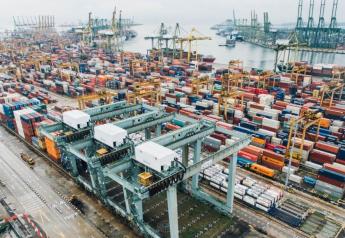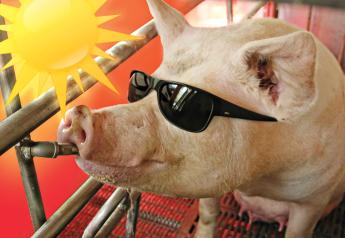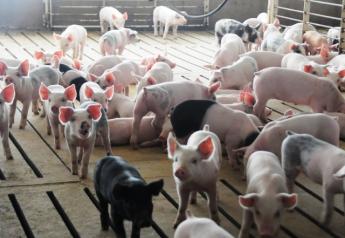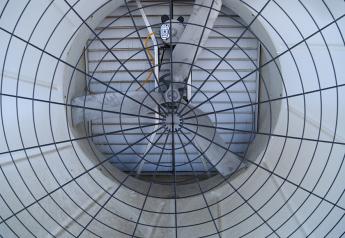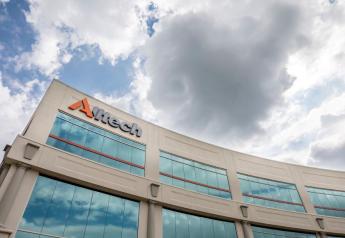Pork Producers Open Up About Technology, Labor, Foreign Animal Disease and More
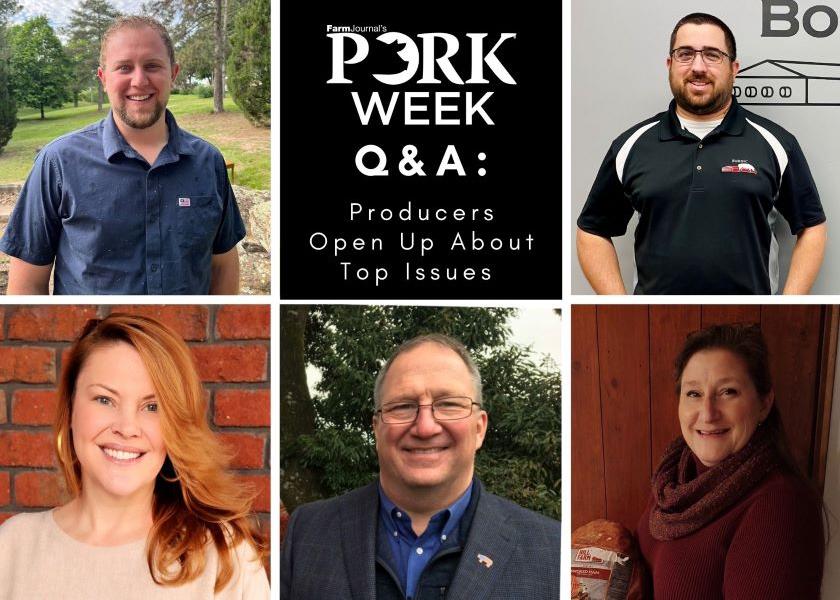
From labor to technology, the opportunities to improve tomorrow’s pork operation continue to expand. Farm Journal’s PORK asked five pork industry leaders to share their perspectives on a variety of subjects from the technology they want to add to their farm to what they can’t live without.
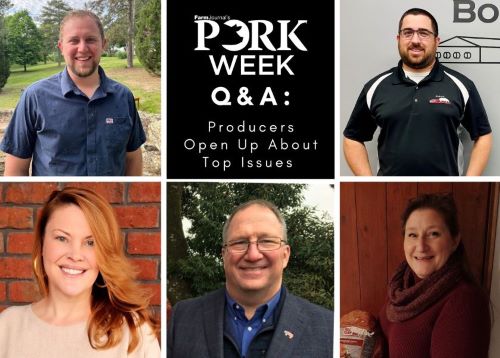
(top row, l to r): Connor Livingston, Matt Frizzo.
(bottom row, l to r): Denise Waller Mason, Dwight Mogler, Alicia Prill-Adams.
Meet the Pork Experts
Matt Frizzo -- Gillespie, Illinois
Frizzo works for Borgic Farms Inc., in Raymond, Ill., where they raise approximately 450,000 market hogs annually that come from their two sow farms. They have 65 contract grower-partner families who take care of and raise Borgic Farms’ pigs.
Connor Livingston -- Fairbury, Nebraska
Livingston is the director of sites and mill operations for Livingston Enterprises Inc., one of the largest family-owned pork producers in Nebraska. They’ve been in the swine production business for more than 40 years and have been incorporated since 2001. They have 14 swine production facilities, six of which are sow farms with 36,000 head that produce over 1.2 million weaned pigs on a yearly basis.
Denise Waller Mason --Mount Olive, North Carolina
Waller Mason is the training and development coordinator for Goshen Farms, a 2,400-farrow-to-wean sow farm. She’s a third-generation pig farmer and believes in educating all communities and youth about sustainable farming in all areas of agriculture.
Dwight Mogler --Alvord, Iowa
Mogler is part of Mogler Farms/Pig Hill Co., a multi-family, multi-generation farm business. Their primary enterprises are farrow-to-finish pork production, beef feedlot production, corn and soybean production, and they also operate a country grain elevator.
Alicia Prill-Adams -- Platteville, Wisconsin
Prill-Adams serves as assistant farm director of the University of Wisconsin-Platteville Pioneer Farm. Her main area of involvement is the management of the swine center and Wisconsin Beef Improvement Association’s Bull Development Program. She also teaches and assists with classes and research projects. The 430-acre Pioneer Farm includes a dairy enterprise (milking herd of 200), 40 beef cows and a 75-sow farrow-to-finish operation. They have several niche markets in the swine center, including purebred Berkshires they market as breeding stock, feeder pigs and butcher hogs. They also sell show pigs in the spring.
Q. What can’t you live without on the farm every day and why?
MF: It’s sad but I can’t live without my phone. We have most everything saved in cloud storage, which makes it accessible anywhere. So, when I’m at a farm I can look up a schedule or a closeout without having to ask someone to get me the information. From keeping up with trucks, our field staff and everything at home, I don’t think I could do it without my phone. And yes, I know it didn’t used to be that way.
CL: We cannot live without team members, feed, water and electricity as these are essential components to raising pigs.
DWM: The people. Technology advancement has been huge for agriculture, but nothing can replace the day-to-day observations and hands-on animal care like a great team of trained individuals.
DM: The capabilities and capacity of our electronic data capture, storage and real-time reporting systems via multiple software products which allow us to measure both biological and financial performance of our various farm enterprises. Embracing the continuous improvement process has allowed us to not only be an early adaptor to new production technologies, but also an early adaptor to the rapidly evolving electronic data collection applications that empower us to confidently manage our business based on sound data that drives our performance metrics.
APA: Great question and actually pretty difficult to answer. I would say the internet as it answers a lot of questions, allows me to order supplies and provides countless opportunities.
Q. What technology are you most interested in adding to your farm in the next 5 years and why?
MF: We’ll continue to explore technology that can reduce or support human capital and bridge communication gaps between our farms and our management team. Things like real-time health monitoring and inventory management to be able to know what is happening on a farm without having to wait on that dreaded phone call. I don’t know that we’ll ever be able to completely remove the human caretaker, but what technology can support these caretakers? We’ve looked at a few different technologies and are excited to see what will come next.
CL: I am most interested in pursuing solar energy to reduce the cost of electricity and reduce our carbon footprint.
DWM: I would like to incorporate more smart farming technologies into my barns to better monitor and manage the individual needs of my animals.
DM: We are intrigued by technologies that measure and monitor via electronic optical and audio sensors. The capacity to replicate what we typically do with our eyes and ears via sensors that can read and record 24/7 is incredibly exciting. If we can deploy artificial intelligence (AI) applications that will perform tasks more accurately and reliably than what we currently do with our human resources, the possibilities are mind-boggling. However, we will need to be mindful of the unintended consequences of artificial intelligence technology and find the proper balance of human interaction and technology so as not to lose the trust and confidence of the consumer.
APA: Energy saving, feed saving technology. Not sure we have identified a specific technology that we would like to incorporate yet.
Q. What is the most important issue the pork industry needs to focus on now?
MF: I don’t know how to pick one. Between defending our ability to raise animals as we see best without increased regulation (Prop 12); not losing focus on keeping the U.S. pork industry safe from foreign animal disease (FAD), or at least prepared to handle FADs in a way that allows us to remain competitive without losing markets; and labor. It seems like I can’t have a conversation with anyone without labor being a topic.
CL: There are several things that come to my mind, including labor, high input costs, fuel increases and disease challenges.
DWM: Labor issues. We need a faster, easier system for bringing in contract workers (TN-Visa, H2A-Visa) as the process takes months to complete.
DM: FAD preparedness. We have too many eggs in the export basket to not keep this a top industry priority.
APA: African swine fever (ASF). Despite unstable markets right now and expensive feed, if our producers have to deal with ASF, it would be very detrimental. Actually, any FAD would be costly.
Q. Why do you do what you do? What drives you as a pork producer each day?
MF: In high school, I thought I wanted to work in the pork business. In college, our swine management class took a trip to visit a large producer, and I knew then I wanted to work in the pork business. I get to work with the best people between the families that raise our pigs to the long list of friends and coworkers I get to work with every day. It’s really all about the people. Every day I challenge myself and my team with the question, “How can we be better today?” That’s what drives me; I want our team to continue to grow and reach our goals as well as the goals our team members have set for themselves.
CL: I wake up each morning focusing on how we are going to continue to feed a growing and hungry world by producing a safe, nutritious protein.
DWM: Farming has been a part of my family for generations. I am so proud to be able to farm and especially proud of my work in the pork industry. My love for the animals, the people and for agriculture is what drives me. I love to share what I do with others, and I want to continue to tell my story to the next generation.
DM: Producing safe, affordable food is not only a high calling, but a very noble vocation. Economies cannot thrive and standards of living cannot improve without providing an abundant, affordable, reliable and safe supply of the basic needs of society – food, fiber and energy. A sustainable agricultural economy is the foundation upon which all other industries will prosper.
APA: I enjoy being around livestock and the challenges it poses. I have a unique opportunity to work with students, and many of the students I work with have no swine experience. I think the animals teach the students more than I do. I try to stay challenged, try new things and work toward new goals. Being an advocate for agriculture is why I do what I do.
We will be uniting together June 6-12 for PORK Week across all of our Farm Journal platforms to elevate the important role the pork industry plays in feeding the world. Share your stories and post photos on social media using #PORKWeek22 to help us honor the pork industry. From “AgDay TV” to “AgriTalk” to “U.S. Farm Report” to PorkBusiness.com and everything in between, tune in and join us as we acknowledge the most noble profession there is: feeding people.
Read More:
What Do You Need to Pay Attention to Now Regarding Swine Health?
Economists Urge Pig Farmers to Watch Out for These Threats to Pork Outlook


